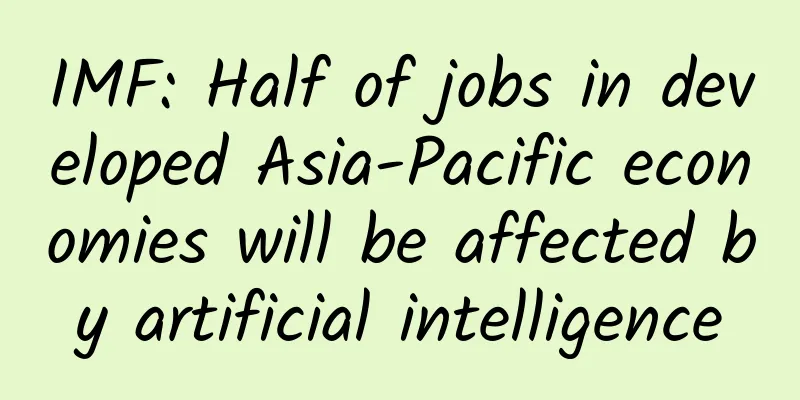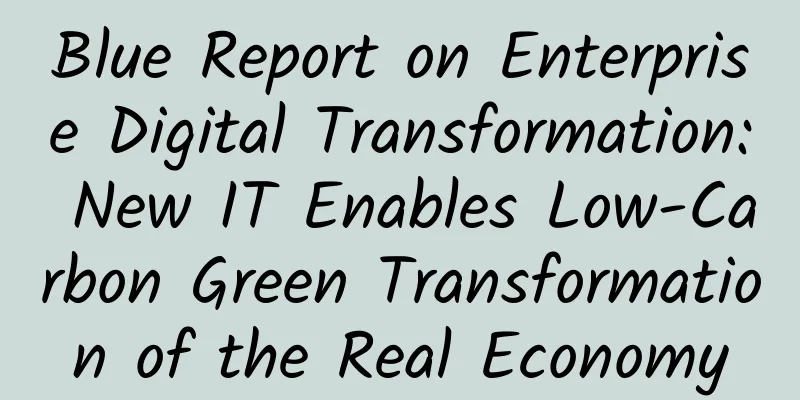IMF: Half of jobs in developed Asia-Pacific economies will be affected by artificial intelligence

|
The International Monetary Fund recently published a blog post stating that the labor markets of economies in the Asia-Pacific region are likely to change due to the impact of artificial intelligence, and developed economies will be more affected. About half of the jobs in developed economies in the region are affected by artificial intelligence, while in emerging markets and developing economies, this proportion is only about a quarter. The article states that more jobs in developed economies in the Asia-Pacific region will be supplemented by artificial intelligence, which means that the technology is likely to improve productivity rather than completely replace these jobs. Rising inequality between countries The article points out that the concentration of jobs supplemented by artificial intelligence in developed economies in Asia may gradually increase inequality between countries. About 40% of jobs in Singapore are considered highly complementary to artificial intelligence, while the proportion in Laos is only 3%. The article also points out that artificial intelligence may also exacerbate inequality within a country. In the Asia-Pacific region, most workers at risk of unemployment are engaged in service, sales and clerical support jobs. At the same time, workers who are more likely to benefit from artificial intelligence usually hold management, professional and technical positions, which are often already high-paying positions. The article states that women are more likely to be disrupted by artificial intelligence because they are more likely to work in service, sales and clerical jobs. In contrast, men account for a higher proportion of occupations that are unlikely to be affected by artificial intelligence at this stage. These occupations include farm workers, machine operators, and low-skilled entry-level workers. Regulatory policies to address inequality The study points out that building a sound social security system and carrying out professional skills reshaping for affected workers are the keys to achieving an inclusive transformation of artificial intelligence. In order to regulate the application of artificial intelligence, relevant departments need to introduce regulatory policies to ensure that the use of technology complies with ethical standards and strengthen data security. This will not only reduce the potential risks caused by artificial intelligence, but also give full play to its role in promoting economic development and improving efficiency. |
<<: Inside iOS 9.3.5: A detailed look at the biggest vulnerability in iOS history
Recommend
The logic and method of operating a Zhihu account at zero cost
Zhihu started operating in September 2019, and it...
How to monetize short videos in the medical and health field?
In the past few months, we have participated in t...
WeX5 cross-terminal mobile development framework V3.2 official version released
WeX5 Enterprise Rapid Development Platform V3.2 O...
How are typhoons named? Is it feudal superstition?
my country borders the western Pacific Ocean and ...
It turns out that these common things in life were originally prepared for astronauts!
On October 12, 2024, Lei Zhanxu, Secretary Genera...
51CTO interviews Wang Tao, CTO of Sequoia Database: Methods of data processing and technology selection in the era of big data
Big data has penetrated into all walks of life. M...
High-efficiency traffic-based anchor training camp: quickly improve anchor capabilities and achieve 1 million sales live broadcast rooms
High-efficiency traffic acceptance anchor trainin...
Can I go to Beijing during the 2022 Two Sessions? Can people from other places enter Beijing? Attached with the latest regulations
The National People's Congress and the Chines...
Sky-observing artifact | Big Ear Telescope: Detailed explanation of Wow! Signal 6EQUJ5, was it sent by aliens?
Author: Hatton (student of the Science Voice Know...
[Bai Gu Jing] Xue Han's advanced study of the Chaos Theory of Stocks: Chaos Theory's price comparison relationship - the secret of sector rotation 8 episodes
【Bai Gu Jing】 Xue Han's Chan Theory Stock Adv...
“After a full meal, you have a second stomach for dessert”, is it true?!
I don’t know if you have ever had this experience...
Training camp operation strategy from 0 to 1 million!
In 2020, I was not satisfied with the status quo ...
The battle of billions of pixels: What are the mobile phone manufacturers competing for?
Recently, Xiaomi introduced Samsung's first 6...
Earphones may make Apple the king of wearables
I ran down the subway station stairs, thinking I ...
Are you sure the name Youyouguan is not meant to be cute?
What would you do if you found out that your room...








![[Creative Cultivation Program] Brain-computer interface: Feel everything without leaving home](/upload/images/67f248cbd539d.webp)
